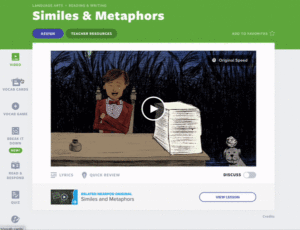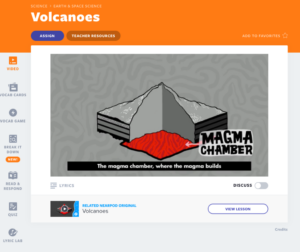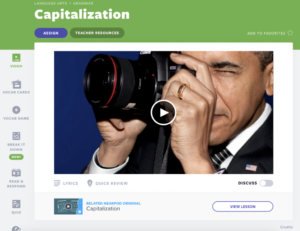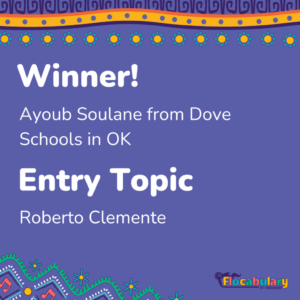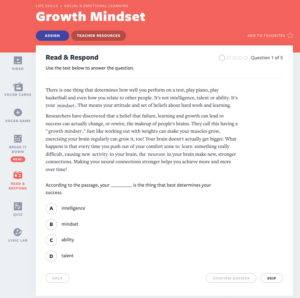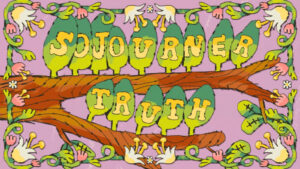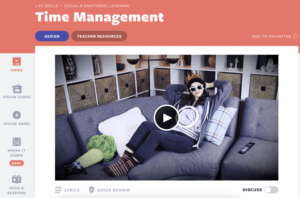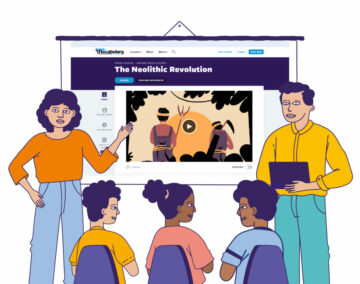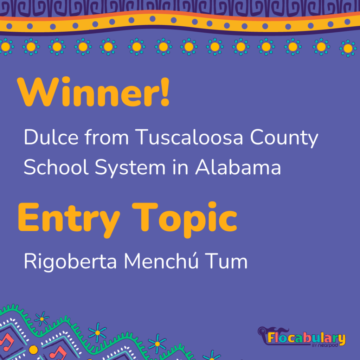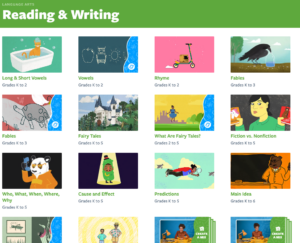Whether you are introducing Hammurabi, studying the three branches of government, or reviewing World War I, our videos and supporting activities will complement and enhance your instruction. Social studies videos for ancient world history, historical figures, modern world history, holidays, US history, economics, civics, historical practices, geography, issues in the news
Compare and contrast
The past’s connection with the present is an important part of social studies instruction. In this style of lesson students compare and contrast past and present time periods across the world.
Select any Flocabulary social studies video to compare past and present time periods across the world. Students can identify key figures, places, and events from a significant time in history. After they can research these historical figures and places in the present day and compare and contrast key players with current events and analyze the similarities and differences.
Throughout the lesson, students can do Flocabulary activities to support vocabulary acquisition and end with a writing assignment of an essay that examines the similarities and differences in the past and present and proposes a thesis as to how much they may have or have not changed.

Time travel with historical fiction writing
Reading historical fiction provides a compelling way for students to learn about different time periods. In this idea, students will write their own short historical fiction story using details from a historical period.
Students start with watching a Flocabulary social studies video about a historical time period. Next students make a list of important key terms they can remember: people, places, and ideas that were important to that time period. Students will use these details to write a short historical fiction story.
Discuss with students what historical fiction is and share examples they may have read before. If they have never read historical fiction before, you may want to use Flocabulary’s Fiction vs. Non-fiction video to talk about how historical fiction can be tricky: It contains a lot of real details even though the events of the plot may be made up. Students can then review the five elements of a story with the Flocabulary video Five Elements of a Story.
Give students time to plan and draft their stories. Stories will need to be set in the historical time period they’re studying and students should include the key terms they identified earlier. It’s up to students to create characters, plot, and conflict.

History debate
Debating a historical event can help students clarify their understanding of a topic, support their opinions and understand other views of current events. Debates encourage interactions and socialization in the classroom.
Students can start by watching a Flocabulary social studies video which will be the focus of the debate. Create a statement related to the topic that is written in the affirmative. For example, The Industrial Revolution had an immediate, positive benefit on people’s lives.
Then write the oppositing argument. You can also have students create their own argumentative statements. Remind students to write down statements with which a resasonable person might disagree.
Next, divide the class into two or more groups and assign each group a side of the debate. The “pro” group will argue for the statement. The “con” group will argue against it. Explain to students that they don’t need to personally agree with the statement in order to argue for it in a debate.
Using the clickable lyrics in the Flocabulary lesson, have students research the topic. Each group can work indepedently to write down points that will support their argument. Students can use personal opinions to guide them, but should suppor ttheir opinions with facts whenever possible. You may want to allow students to use lines from the Week in Rap as supporting evidence.
After researching, students come up with a list of points that can support their argument and when finished they should think about what the other side may argue and be ready to address those points. Once the research is done students are ready to have a formal debate. Students from either side share their viewpoints and then each side will be able to rebut (argue against) the other side’s arguments before the class declares a winner.

Bring current events into social studies instruction
Today’s news will become tomorrow’s history. Zoom forward through history to current events. Flocabulary creates a new current events video called The Week in Rap each Friday. Explore The Week in Rap, and make time for it in your class each week.
Week in Rap lessons are available for grades 6-12 and The Week in Rap Junior is for grades 3-5. Week in Rap lessons contains Flocabulary’s signature hip-hop video with supporting activities like Vocab Cards, Vocab Game, Quiz, and Lyric Lab. Each video’s vocabulary terms give students a chance to demonstrate mastery over terms they see and hear in current events.

Create a lyrical timeline
Set aside space on the wall of your classroom to create a timeline for your history course with an area for each historical period. Have students write their favorite lyrics from Flocabulary videos in each time period’s section. They can illustrate key vocabulary and concepts from that time period they learned through Flocabulary. Regularly review a few lyrics and key facts from the time period throughout the year to support social studies instruction and social studies vocabulary acquisition.
Biographies
Biographies help students learn about history and social studies through the eyes of a historical figure. With Flocabulary’s lessons on historical figures, students can learn about figures like Frida Kahlo, Booker T. Washington, Sacagawea, James Baldwin, Katherine Johnson, Toni Morrison, José Hernández, and more.
After watching the Flocabulary video and completing the activities to master the vocabulary, students can work together in small groups to write a poem or rap song of their own using Lyric Lab. With a built-in rhyme generator and the vocabulary words easily available, students can easily jump into writing rhymes about any historical figure using the vocabulary words from their lesson.

With Flocabulary’s social studies lessons teachers can bring literacy, vocabulary, and writing experiences into every subject.
- acquisition
- activities
- AREA
- arguments
- branches
- conflict
- Current
- day
- debate
- Economics
- Event
- events
- Experiences
- Fiction
- Figure
- Focus
- Forward
- Friday
- game
- Government
- Group
- guide
- history
- holidays
- How
- HTTPS
- idea
- identify
- industrial
- Industrial Revolution
- issues
- IT
- Johnson
- jump
- Key
- LEARN
- learned
- List
- news
- Opinions
- order
- Other
- People
- present
- Quiz
- research
- review
- set
- Share
- Short
- small
- Social
- Space
- start
- Statement
- Stories
- studies
- support
- teachers
- time
- tips
- travel
- us
- Video
- Videos
- war
- washington
- week
- words
- Work
- world
- writing
- year
- zoom

